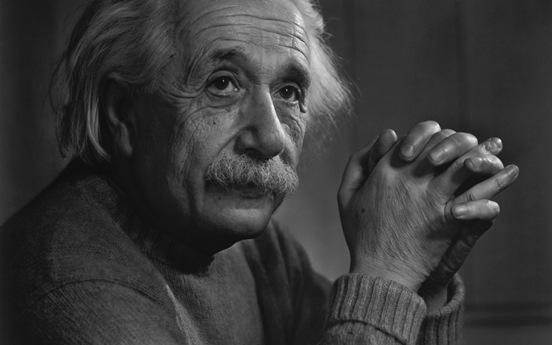Albert Einstein (1879 – 1955) was the most significant physicist since Sir Isaac Newton. In the seventeenth century Newton effectively launched classical physics, inventing calculus along the way as the language to describe his discoveries. Einstein’s great achievement was that he succeeded in describing reality at certain boundary conditions where classical physics broke down—really fast objects and extremely small or large objects. In this connection, he framed the Special and General Theories of Relativity. Einstein’s discoveries resulted in such practical innovations as nuclear power and the Hubble Space Telescope. Einstein is often remembered for his celebrity-like status and womanizing, but one of his lesser-known qualities was that, unlike so many popular scientists today, he was a theist. Einstein’s religion did not include a personal God, the God of the Bible. Nevertheless, he stood humbly in awe at the elegant order of the universe. When asked by an interviewer if he was an atheist, the famed scientist responded:
I’m not an atheist. The problem involved is too vast for our limited minds. We are in the position of a little child entering a huge library filled with books in many languages. The child knows someone must have written those books. It does not know how. It does not understand the languages in which they are written. The child dimly suspects a mysterious order in the arrangement of the books but doesn’t know what it is. That, it seems to me, is the attitude of even the most intelligent human being toward God. We see the universe marvelously arranged and obeying certain laws but only dimly understand these laws.1
![]()
Footnotes:
![]()
1 First published as “What Life Means to Einstein,” Saturday Evening Post, October 26, 1929. Quoted in Walter Isaacson, Einstein: His Life and Universe (New York: Simon & Schuster, 2007), 386.





